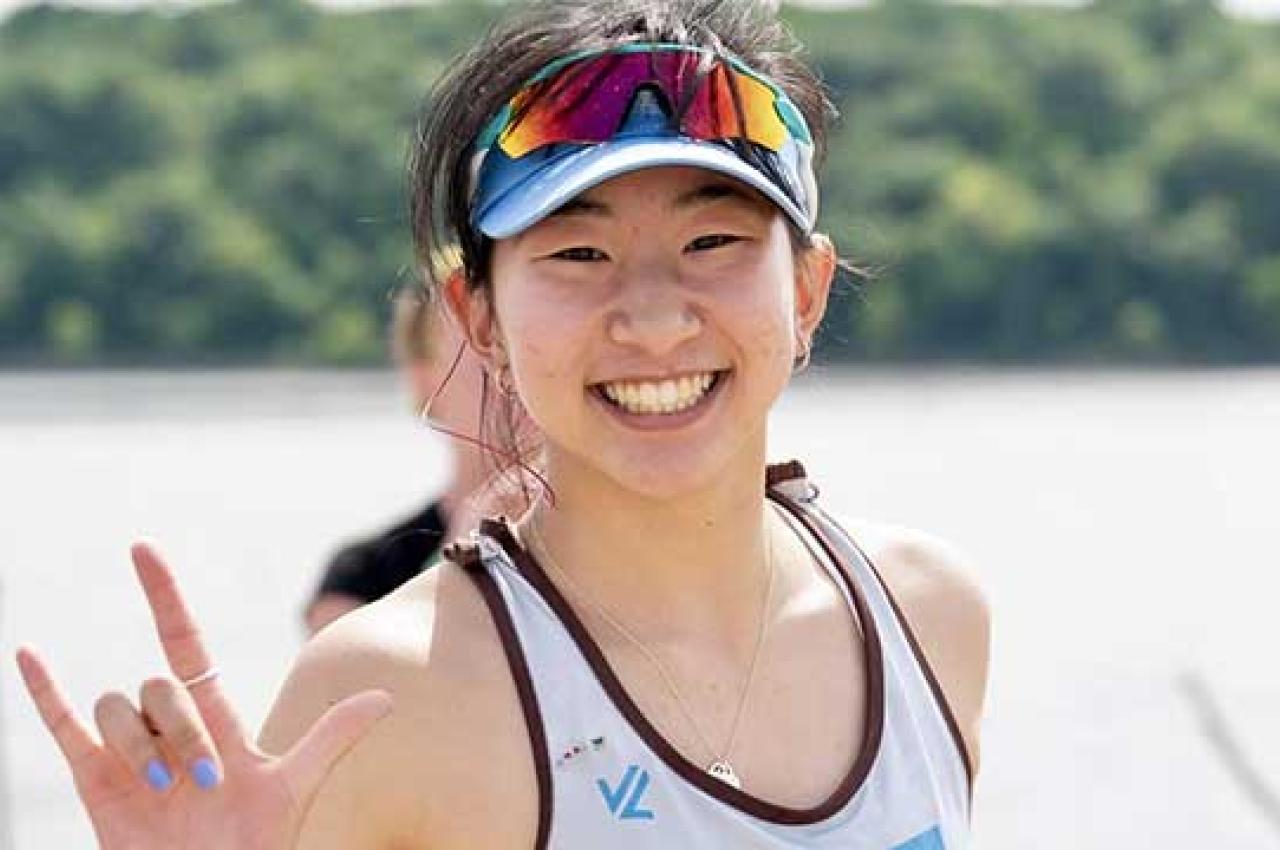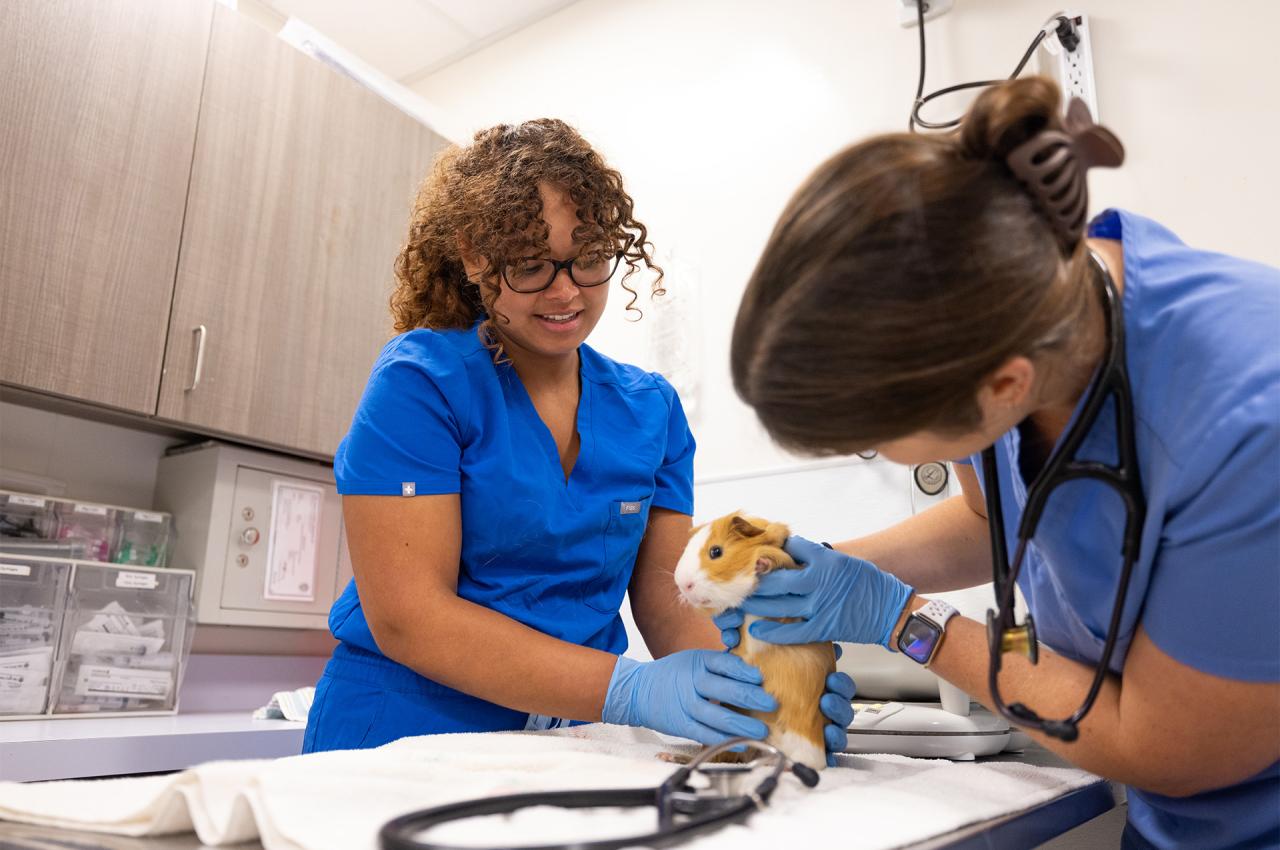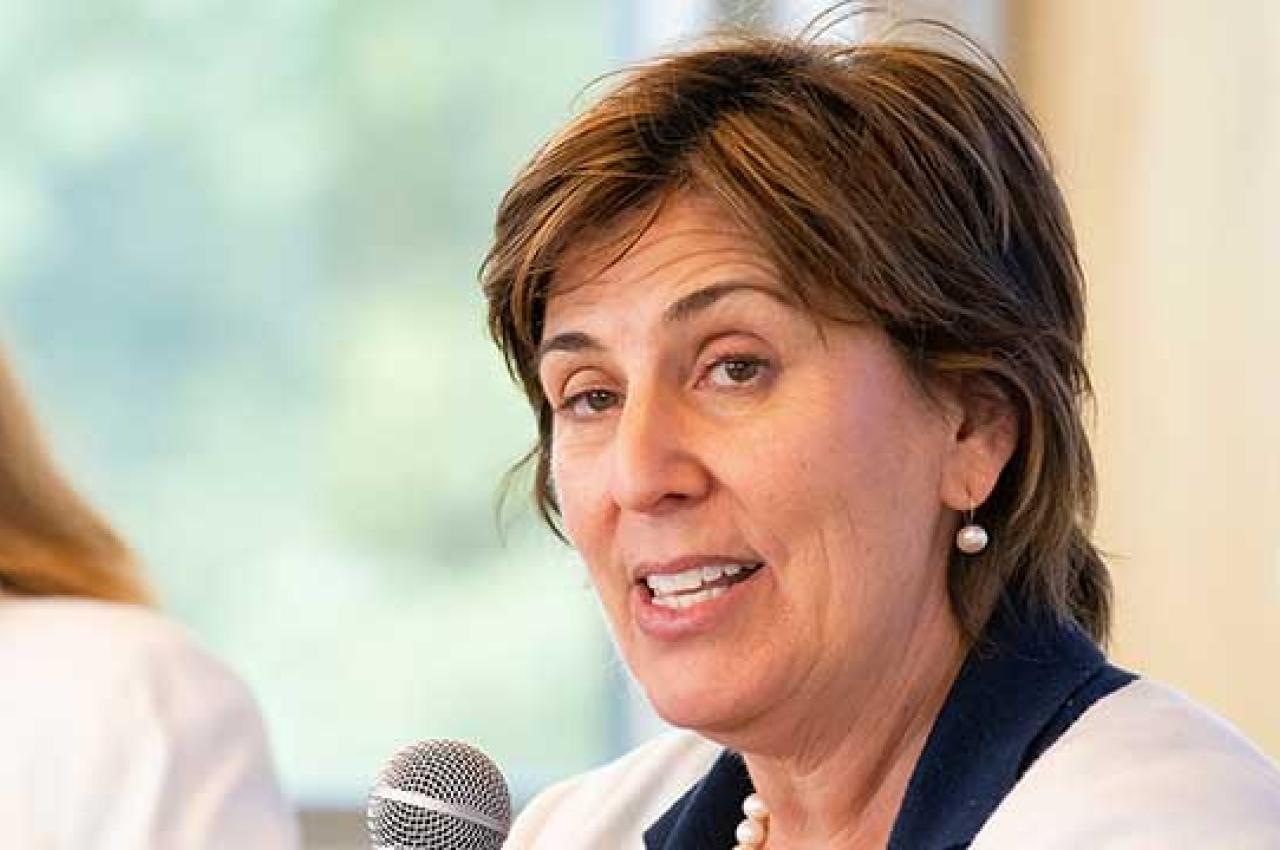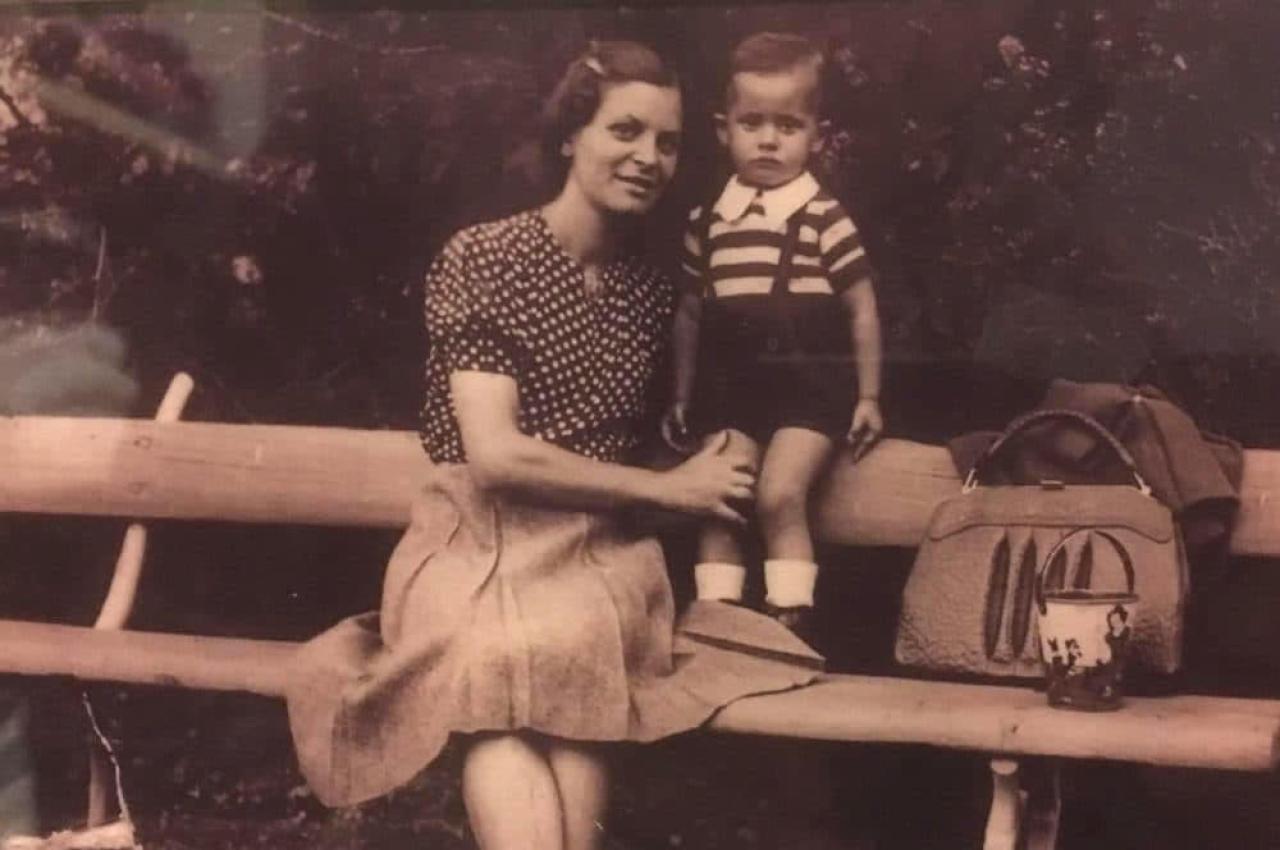How a Small-but-Mighty Coxswain Leads Tufts Women’s Rowing
As a coxswain, Hannah Jiang, A26, is the eyes, ears, and voice of the first varsity Tufts University women’s rowing boat, which is powered by the team’s strongest eight rowers. She stands at just 5 feet 3 inches tall, a head shorter than her teammates, but her size is no reflection of her presence. In 2024 and 2025, Jiang led the team to win back-to-back NCAA Division III National Championship titles.
From an ultra-compact seat at the stern—or rear—of the boat, Jiang faces forward while the eight rowers have their backs to the course. She steers the boat using cables concealed at her sides, she keeps the rowers in sync and motivates them when it’s time to crank up the energy, and she makes tactical decisions on the fly, relying on her eight years of experience to help propel the team across the finish line.
Hannah Jiang, top center, celebrates the women's rowing team clinching its second straight NCAA Division III Championship title. Photo: Jeremy Miller for Tufts University
Tufts Now caught up with Jiang, a cognitive and brain science major, to learn what it takes to stay composed during competition, how she connects with her teammates to build trust, and how her studies have helped her grow as an athlete.
What does a coxswain need to bring to the boat in terms of leadership skills?
The biggest trait a coxswain needs is confidence. A lot of how rowers respond on the water in high-pressure situations is reflected in how much confidence you can show. Sometimes you might not feel like you have exactly the right answer because everything moves so quickly, but you have to do what you think is best within a split second. In my role, I have to stick with a decision and tell myself that regardless of the outcome in 10, 15, or 20 strokes, it was the right decision, because I know what my boat needs.
Hannah Jiang, right, guides rowers to carry the boat from the Shoemaker Boathouse to the Malden River. Photo: Anna Miller
How would you describe your leadership style while you’re on the water?
When I try to lead my crew to do some really cool things, whether it’s adjustments in practice or during a race, I know I need to keep the standards high. I treat practices like they’re race days. The goal is always to make us better tomorrow.
Making sure we’re all on the same page is something that a coxswain needs to do well, so that the rowers understand what we’re doing at every point. The worst thing that can happen is having rowers question what they should be doing.
Confidence and clear communication are the two most important things a coxswain can bring to the role.
Hannah Jiang on The 'Bo Show
Hosts of The 'Bo Show, Tufts University Athletics' official podcast, Jamie Chagnon and Paul Sweeney sat down with Jiang in the spring to hear what it's like to sit in the coxswain seat, how Jiang keeps track of her boat's progress with tools in the "cox-box," and more of what it takes to find success on the water.
What is it like for you to be out on the water with your teammates?
For me, being on the water is absolutely magical. It might look repetitive to spectators, but no two strokes are ever the same.
There’s always some sort of small tweak that we’re making, and from the perspective of a coach, or a coxswain like me, you can tell when the boat is moving really well and when a technical change has clicked for a rower. That reminds me that I’m doing my job well, which is awesome.
How do your education and interest in coding and brain science impact your role as a coxswain?
I'm very persistent. In computer science, you have to be persistent and stubborn to get code to work. Sometimes you think, ‘Oh my god, I did this, and now everything is perfect,’ and then you run it and the code is broken.
I’ve learned how not to yield to the code if it didn't work. When that happened, I would just try another way to figure it out.
That experience required a lot of problem solving, which I think translates really well to athletics. Unexpected things happen. The 2025 season for the women’s rowing team wasn’t perfect. There were plenty of weather delays, a lot of cancellations, issues with rigging changes, and through it all, we had to be adaptable and work around it.
How do you deal with negativity or setbacks?
In rowing, I don’t believe there are ‘bad practices.’ There are practices that maybe aren’t up to the standard that you want them to be, but I think there is always a lot to learn from practices even if they aren’t going as well as they could be. I’m always looking for just at least 1% improvement, in practice or otherwise, and that will make the team as a whole very successful.
My coach likes to describe me as a very positive and peppy person, which bodes well as a coxswain, because a big part of my role is keeping the positive energy up. I feel like it’s my job to be able to bring rowers back into the moment when they get in their heads.
Hannah Jiang stops for a photo at the 2025 NCAA Division III Championship on May 31 at Mercer Lake in West Windsor, N.J. Photo: Mark Smith for Tufts University
When you’re heading into a high-stakes race, does your approach change?
I think the worst thing that can happen, especially in the case of our back-to-back trip to the NCAA Division III National Championships this year, is to get caught up in trying to repeat past performances. Since we also won in 2024, there was a lot of external pressure on the team.
Before we left for New Jersey, my job was to remind the team that last year was beautiful, and we might be able to do it again, but this is a different team with different people in the mix. We did a really good job of not getting too caught up in last year’s results, and we held each other to a high standard of practicing—getting to practice on time, getting oars down, checking all of our equipment, and doing the small things to improve.
Latest Tufts Now
- Tufts Connections With Two Key Massachusetts Health Leadership RolesSchool of Medicine community members now lead both the Commonwealth’s Executive Office of Health and Human Services and Department of Public Health
- New 3D Tissue Model May Speed Better Therapies for FibrosisLab-grown skin captures the complexities of real disease to develop more effective treatments for scleroderma and other life-threatening conditions
- 20 Years of Tisch Summer FellowsMore than 1,000 students have jump-started careers for the public good with this civic internship program
- ‘Don’t Fall for FOMO’An undergraduate peer advisor on life as an international student
- New Approach to Alternative Energy Sources for College CampusesAt Tufts, state officials, higher education representatives, and energy experts highlight new regulations that could improve access to geothermal energy and lower costs for all
- I Protected My Children From Our Holocaust History. But Then They Grew UpIn Serbia’s capital, my daughter and I learned side by side about my father’s wartime experience—and our family’s heartbreak













